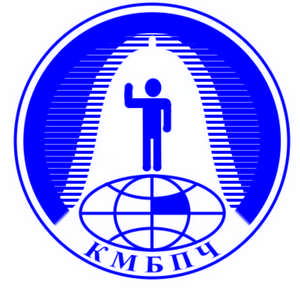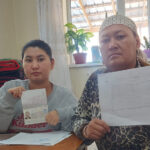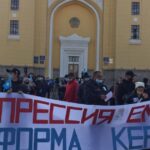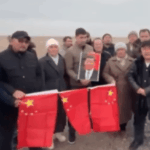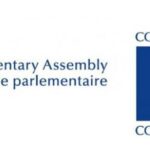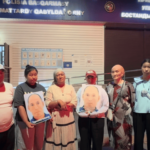To the Prosecutor General of the Republic of Kazakhstan
B. N. Asylov
To the Commissioner for Human Rights in the Republic of Kazakhstan
A. E. Lastaev
OPEN LETTER
Kazakhstan International Bureau for Human Rights and Rule of Law (KIBHR)
On Sunday, August 17, at 7:00 a.m., in M. Gandhi Park in Almaty, prominent Kazakhstani human rights defender Bakhytzhan Toregozhina was detained.
According to officers of the Almalinsky District Police Department, the reason for the detention was a planned event in Astana – a “run” in support of political prisoner and ultramarathoner Marat Zhylanbayev.
The human rights defender was taken to the police department, where she was asked to provide a written statement. She refused and insisted on the presence of her lawyer, Galym Nurpeisov.
After the lawyer arrived, the police informed her without prior notice that B. Toregozhina was a witness in a criminal case under Article 405 of the Criminal Code of the Republic of Kazakhstan (the case concerning the recognition of the public movement “Democratic Choice of Kazakhstan” as an extremist organization) and would be interrogated. However, in reality, the questioning concerned her presence in M. Gandhi Park and her attitude toward the planned event in support of M. Zhylanbayev in Astana.
After the interrogation, instead of allowing Ms. Toregozhina to freely leave the police department building where her supporters and journalists were waiting for her, police officers forcibly took her home and warned her not to leave the house.
The KIBHR regards this detention as a blatant, unlawful, and deliberate violation of the law and universally accepted norms.
It reflects the practice of “preventive detentions” used by the authorities ahead of peaceful assemblies in order to suppress civic activity. Such measures are usually taken in advance to isolate activists from participating in public initiatives. However, in the case of B. Toregozhina, the situation was even more absurd: in the morning she was simply jogging in a park near her home and had no intention of taking part in the event that was planned in Astana.
What happened to Ms. Toregozhina qualifies, according to subparagraph 29 of Article 7 of the Criminal Procedure Code of the Republic of Kazakhstan, as a “de facto detention,” meaning a restriction of freedom, including freedom of movement, and forcible delivery to investigative bodies, without any legal grounds, from the exact minute when such a restriction became real, regardless of whether any procedural status was assigned to the detainee or other formal procedures were carried out.
The attempts by officers of the Almalinsky District Police Department to justify their actions by the need to interrogate a witness cannot be justified.
According to the legislation of Kazakhstan, a witness is summoned for questioning through a subpoena, which specifies the details of the criminal case, the status, the time and place of the interrogation, as well as explains the rights, and which is handed over to the witness.
Only in the case of failure to appear when summoned without valid reasons, in accordance with Part 1 of Article 157 of the Criminal Procedure Code of the Republic of Kazakhstan, may a witness, and even a suspect, accused, or defendant, be subjected to compulsory delivery on the basis of a reasoned ruling by the person conducting the pre-trial investigation. Moreover, according to Part 3 of the same article, the ruling on compulsory delivery must also be presented to the witness prior to its execution, which is confirmed by their signature on the ruling.
The five police officers who escorted Toregozhina to the police department did not comply with any of the above requirements of procedural law.
Toregozhina herself considers her detention an act of intimidation against civil society as a whole.
The KIBHR sees in the actions of the officers of the Almalinsky District Police Department evidence of multiple criminal offenses: violation of privacy (Article 147 of the Criminal Code of the Republic of Kazakhstan); abuse of power or official authority (Article 362 of the Criminal Code); knowingly unlawful detention, arrest, or custody (Article 414 of the Criminal Code).
According to the Constitution of the Republic of Kazakhstan (Article 16), everyone has the right to freedom and security of person. This right is also guaranteed by Kazakhstan’s international obligations — the International Covenant on Civil and Political Rights (Article 9), to which Kazakhstan is a party.
The detention of B. Toregozhina violates both national legislation and international standards and reflects the practice of “preventive detentions,” which has been repeatedly criticized in documents and reports by the UN Human Rights Committee, the OSCE ODIHR, Human Rights Watch, and others.
We urgently call for those responsible to be held accountable and for the practice of preventive detentions to be stopped.
Almaty, August 19, 2025


